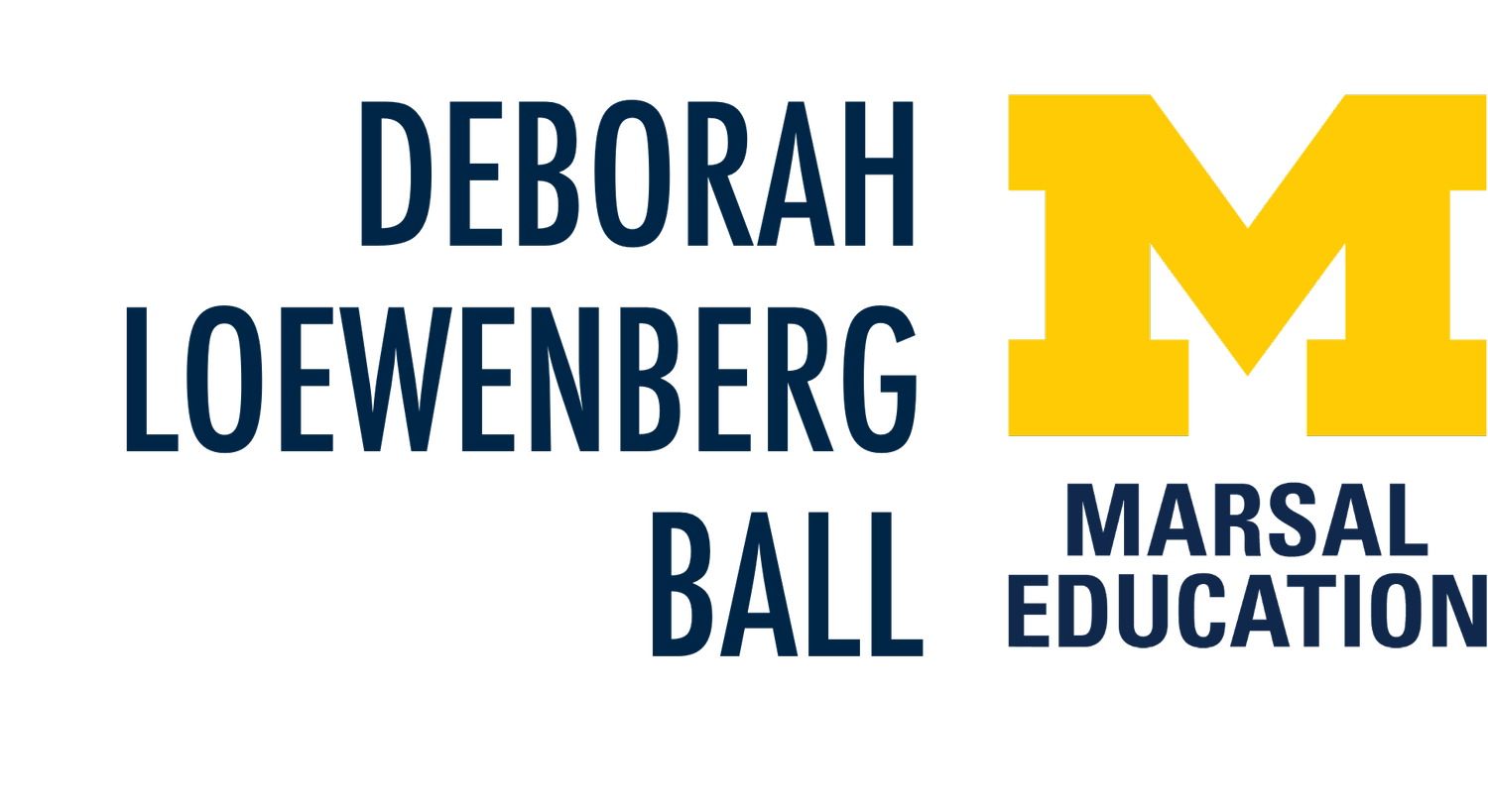

Projects
Projects
TeachingWorks is committed to raising the quality of entry-level teaching and the learning of students in beginning teachers’ classrooms. The goal is for all students, wherever they are or whoever they are, to receive responsible teaching that can help them grow and develop—every single year. TeachingWorks is especially focused on achieving equitable educational opportunities for communities of color and children living in poverty by improving the consistent quality of teaching that children receive.
The foundation on which TeachingWorks was established is a set of high-leverage instructional practices and the specialized ways of knowing and using content. These are based on analyses of the demands of everyday instruction as well as on research on student experience and learning, teaching, and contexts. This core set of professional skills, commitments, and knowledge is the basis of TeachingWorks' partnerships and the development of a threshold for entry to licensed teaching.
To advance its mission, TeachingWorks’ primary approach is to build from this core the resources and mechanisms necessary to transform the professional preparation of teachers. This involves for now two main strands: (1) partnerships with programs and other organizations engaged in preparing and supporting novice teachers, and (2) the completion of practice-based on-demand assessments for initial licensure. In addition, TeachingWorks is engaged in research, design, and development, in growing its capacity to communicate about the importance of skillful teaching and the preparation and support needed to make it a reality for those students who have been most regularly underserved and denied opportunities and access to high-quality teaching and learning.
The Mathematics Teaching and Learning to Teach project investigates the mathematical knowledge, sensibilities, and skills entailed in the work of teaching, studying the interplay of mathematics and pedagogy in the teaching of elementary school mathematics. By looking closely at the mathematical and pedagogical work of teaching—for instance, managing discussions, asking questions, interpreting students' thinking—the project aims to identify mathematical insight, appreciation, and knowledge that matter for teaching and to analyze and articulate ways in which it might be entailed in practice. The MTLT project believes that such analysis is needed to extend what we currently know about the mathematical resources required for teaching, the role of such resources in practice, and, by implication, what learning opportunities teachers and prospective teachers need to develop in order to teach mathematics. Other analyses explore the role of talk in mathematics teaching and learning, the nature of mathematical reasoning, and the relational work involved in teaching mathematics.
Elementary Mathematics Laboratory
The Elementary Mathematics Laboratory (EML) is a mathematics program class that takes place every summer for approximately 30 rising fifth graders. The students are recruited with the assistance of the partner school district whose enrollment is predominantly Black, with a smaller proportion of Latin@ and few White students. Families live in two adjacent communities, both of which have experienced significant economic decline in the last years, including rising unemployment and homelessness. Mathematics achievement is a broad concern in the district, drawing as evidence students’ scores on the state assessment.
Many of the participating students have developed a lack of confidence with mathematics in school. The instruction in the EML seeks to turn this around and to set the students on a path to success in school mathematics and is specially designed to develop strong and positive academic identities in the students. The overarching goal of the EML is to strengthen our ability to teach mathematics in order to improve outcomes for children.
In the two-week program, the children work on mathematics for 2½ hours each day. In the afternoons, they engage in different forms of art and work with a college student mentor. The mathematical content of the instruction includes work on fractions (definitions, representations, placement on the number line), as well as on reading, interpreting, and solving equations. The students also encounter and are supported to solve complex and unfamiliar mathematics problems. Mathematical practices and techniques include explaining, representing, proving complex claims, presenting in public, and listening to others’ mathematical ideas attentively, respectfully, and critically.
The EML also provides educators with an opportunity to engage deeply with public teaching. This public teaching is the centerpiece of the EML professional development program. Workshop attendees—education professionals, researchers, and classroom teachers with diverse expertise and perspectives—start each day with the instructional team in a “pre-brief” session before the class, in which they examine, discuss, and refine the day's lesson plans and strategies for the instruction. Attendees then observe the instruction in the classroom or remote viewing rooms. The group gathers after the class to debrief the class, ask questions, and review daily student work before attending afternoon workshops.


